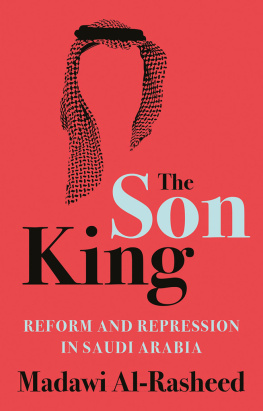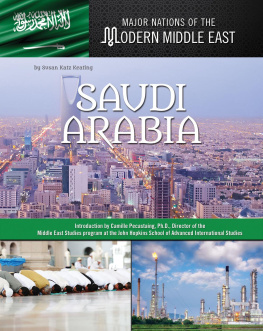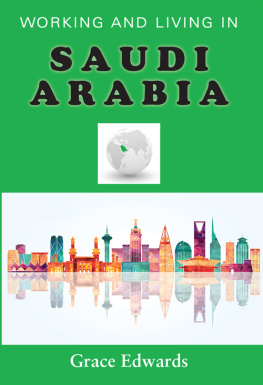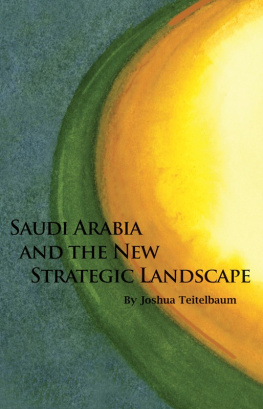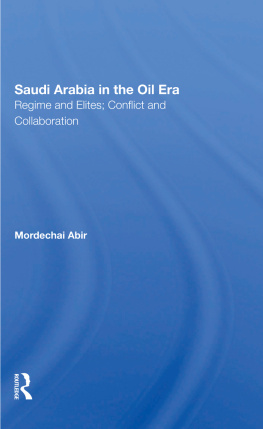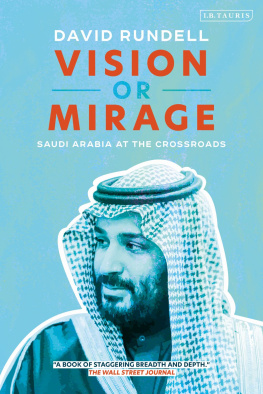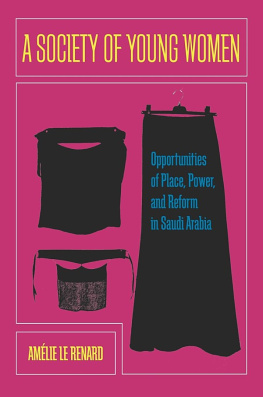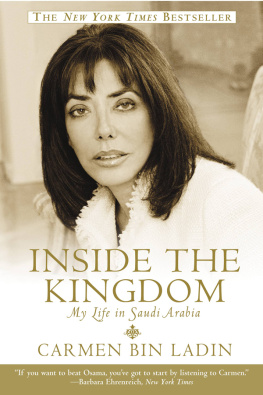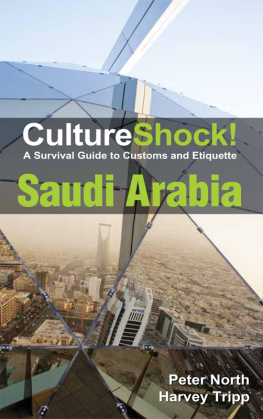Madawi Al-Rasheed - The son king reform and repression in Saudi Arabia
Here you can read online Madawi Al-Rasheed - The son king reform and repression in Saudi Arabia full text of the book (entire story) in english for free. Download pdf and epub, get meaning, cover and reviews about this ebook. year: 2021, genre: Politics. Description of the work, (preface) as well as reviews are available. Best literature library LitArk.com created for fans of good reading and offers a wide selection of genres:
Romance novel
Science fiction
Adventure
Detective
Science
History
Home and family
Prose
Art
Politics
Computer
Non-fiction
Religion
Business
Children
Humor
Choose a favorite category and find really read worthwhile books. Enjoy immersion in the world of imagination, feel the emotions of the characters or learn something new for yourself, make an fascinating discovery.
- Book:The son king reform and repression in Saudi Arabia
- Author:
- Genre:
- Year:2021
- Rating:5 / 5
- Favourites:Add to favourites
- Your mark:
- 100
- 1
- 2
- 3
- 4
- 5
The son king reform and repression in Saudi Arabia: summary, description and annotation
We offer to read an annotation, description, summary or preface (depends on what the author of the book "The son king reform and repression in Saudi Arabia" wrote himself). If you haven't found the necessary information about the book — write in the comments, we will try to find it.
The son king reform and repression in Saudi Arabia — read online for free the complete book (whole text) full work
Below is the text of the book, divided by pages. System saving the place of the last page read, allows you to conveniently read the book "The son king reform and repression in Saudi Arabia" online for free, without having to search again every time where you left off. Put a bookmark, and you can go to the page where you finished reading at any time.
Font size:
Interval:
Bookmark:



Oxford University Press is a department of the University of Oxford. It furthers the Universitys objective of excellence in research, scholarship, and education by publishing worldwide.
Oxford New York
Auckland Cape Town Dar es Salaam Hong Kong Karachi Kuala Lumpur Madrid Melbourne Mexico City Nairobi New Delhi Shanghai Taipei Toronto
With offices in
Argentina Austria Brazil Chile Czech Republic France Greece Guatemala Hungary Italy Japan Poland Portugal Singapore South Korea Switzerland Thailand Turkey Ukraine Vietnam
Oxford is a registered trade mark of Oxford University Press in the UK and certain other countries.
Published in the United States of America by
Oxford University Press
198 Madison Avenue, New York, NY 10016
Copyright Madawi Al-Rasheed 2021
All rights reserved. No part of this publication may be reproduced, stored in a retrieval system, or transmitted, in any form or by any means, without the prior permission in writing of Oxford University Press, or as expressly permitted by law, by license, or under terms agreed with the appropriate reproduction rights organization. Inquiries concerning reproduction outside the scope of the above should be sent to the Rights Department, Oxford University Press, at the address above.
You must not circulate this work in any other form and you must impose this same condition on any acquirer.
Library of Congress Cataloging-in-Publication Data is available Madawi Al-Rasheed.
The Son King: Reform and Repression in Saudi Arabia.
ISBN: 9780197558140
ISBN: 9780197580516 (e-book)
Printed in the United Kingdom on acid-free paper

Map of Saudi Arabia
On 2 October 2018, Saudi journalist Jamal Khashoggi entered the Saudi consulate in Istanbul and was never seen again. Investigations by Turkish authorities and UN sources concluded that the journalist was murdered inside the consulate by Saudi operatives acting on behalf of the regime, who then dismembered and disposed of his body. Saudi authorities initially denied murdering the journalist, but later accepted that he was murdered as a result of a crime committed by Saudi security agents who had been sent to Istanbul. Successive Saudi statements did not make it clear whether the operatives had been instructed to kidnap or murder Khashoggi. Two years on from the murder, the Saudi regime is yet to accept full responsibility and name the high official who gave orders either to kidnap Khashoggi or to murder him. The kidnapping narrative is dubious, simply because the operatives seem to have come to Istanbul prepared for a more sinister mission.
Could such a thing have occurred under the auspices of Crown Prince Muhammad ibn Salman, the rising star who has amassed much power since 2015, when King Salman promoted him to the highest positions in government? How could a monarchy long described by its Western allies and partners as a benevolent authoritarian regime dare to go as far as committing a crime of this magnitude and brutality in the sanctuary of its own consulate? Have we all misunderstood the real Saudi Arabia under the rule of the new crown prince? Have there been serious gaps in our academic knowledge and media reporting on the country since 2015, beyond the visions of its current ruler, oil wealth, investment opportunities and arms sales? Why did observers fail to anticipate the brutality of the new realm, when many Saudi critics, including royalty, have been jailed since 2017?
In the past, academic knowledge about Saudi Arabia exclusively privileged the study of oil, the monarchy and religion. These factors are framed as explaining aspects of the countrys past and current development (or lack thereof), its centrality to Western interests and its potential threat to international order. It is assumed that only the progressive Al Saud leadership can manage the vast oil resources and curb the excesses of the countrys religious zealots. But both abundant oil and radical religion, in the form of the literalist Wahhabi tradition, fall short of telling us the full story about how people navigate their past and present, and also look to the future, in the framework of a repressive centralized monarchy.
The Son King delves into new social and political outcomes beyond the scope of radical religion, oil and the current progressive leadership. It specifically explores the combination of reform and repression under the rule of the new crown prince, Muhammad ibn Salman, and the way these developments have brought on unexpected outcomes. It narrates how Saudi society in the twenty-first century is subjected to unprecedented repression, targeting its youth, women, tribes, regions, religious scholars, professionals, journalists and many others who simply hold different views on the countrys present and future.
Although they do not provide a complete picture of the countrys political landscape, oil and religion are what have made
In academic scholarship, literature about Saudi Arabia beyond a focus on oil and religion has started appearing only recently. Since 2000 new research has focused on the younger generation, capturing both the youths opportunities and the restrictions on their aspirations. Mai Yamanis work traces social transformation among young people, which has taken place at unprecedented speed.
Of course, there is also a growing trend that unapologetically accepts the narrative that the leadership has been empowering young Saudis, especially women, since 2015. This academic literature uncritically reproduces media optimism about the potential of Saudi Arabias new reformist leadership. For example, regime policy to empower women is often blown out of proportion at the expense of realistic, careful and nuanced arguments about the countrys so-called progressive crown prince, massive oil reserves and the alleged entrenched radicalism of its society that the prince is now curbing.
This book goes beyond the overtly emphasized international significance of Saudi Arabia, its progressive leadership, oil and religion to explore new trends at a time when its youth enjoy greater visibility and at the same time endure pervasive repression under the young crown prince. It fills a vacuum in our knowledge about the politics of Saudi youth who have opted for exile as a result of successive waves of repression and restrictions on freedom. It is unique in being the first study of an incipient diaspora, struggling with the dislocation of exile and uprooting, at a time when Saudi Arabia is being constructed as a new kingdom empowering youth, developing its heritage beyond Islam, and opening up economic and social spheres that had been shut for decades. It answers the question of why not just old regime supporters, but also young Saudi men and women, are leaving the country when its leadership pledges to empower them.
The Son King explores the politics of a regime that until the murder of Khashoggi was not considered brutal, deploying repressive methods akin to those that flourished in the rest of the Arab world under authoritarian republics. Unlike assessments of the repressive republican Arab regimes, many observers considered Saudi rulers to have a strong legitimacy of a traditional nature, cemented by a functioning social contract between princes and commoners, and benefiting from lavish oil subsidies and welfare services. This narrative was typical of knowledge in the time of oil, when Saudi Arabia became so important for its Western partners. The latter regarded it as a bastion of stability, not only domestically but across the Arab region. Its abundant oil wealth and the much-appreciated potential market for foreign investment, arms exports, global capital and, more recently, a flourishing entertainment industry for Western performers were enough to maintain partnership with the regime. Under Muhammad ibn Salman, in the eyes of many foreign observers, Saudi Arabia entered a new era of openness, prosperity, economic diversification and ample opportunities for investment and tourism. Representations of the young future king mixed serious assessment with public-relations propaganda, wishful thinking and manipulation of knowledge about the country, all done by its crown prince and accepted by outside media at face value.
Font size:
Interval:
Bookmark:
Similar books «The son king reform and repression in Saudi Arabia»
Look at similar books to The son king reform and repression in Saudi Arabia. We have selected literature similar in name and meaning in the hope of providing readers with more options to find new, interesting, not yet read works.
Discussion, reviews of the book The son king reform and repression in Saudi Arabia and just readers' own opinions. Leave your comments, write what you think about the work, its meaning or the main characters. Specify what exactly you liked and what you didn't like, and why you think so.

